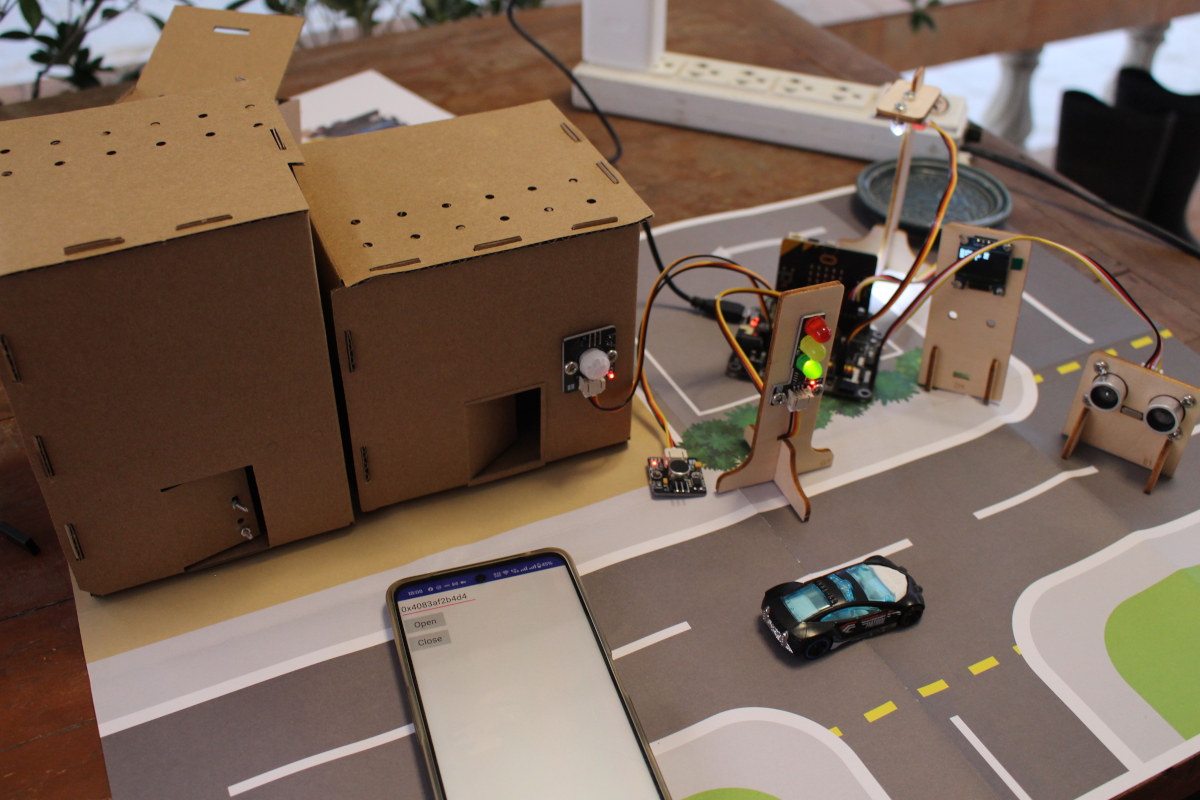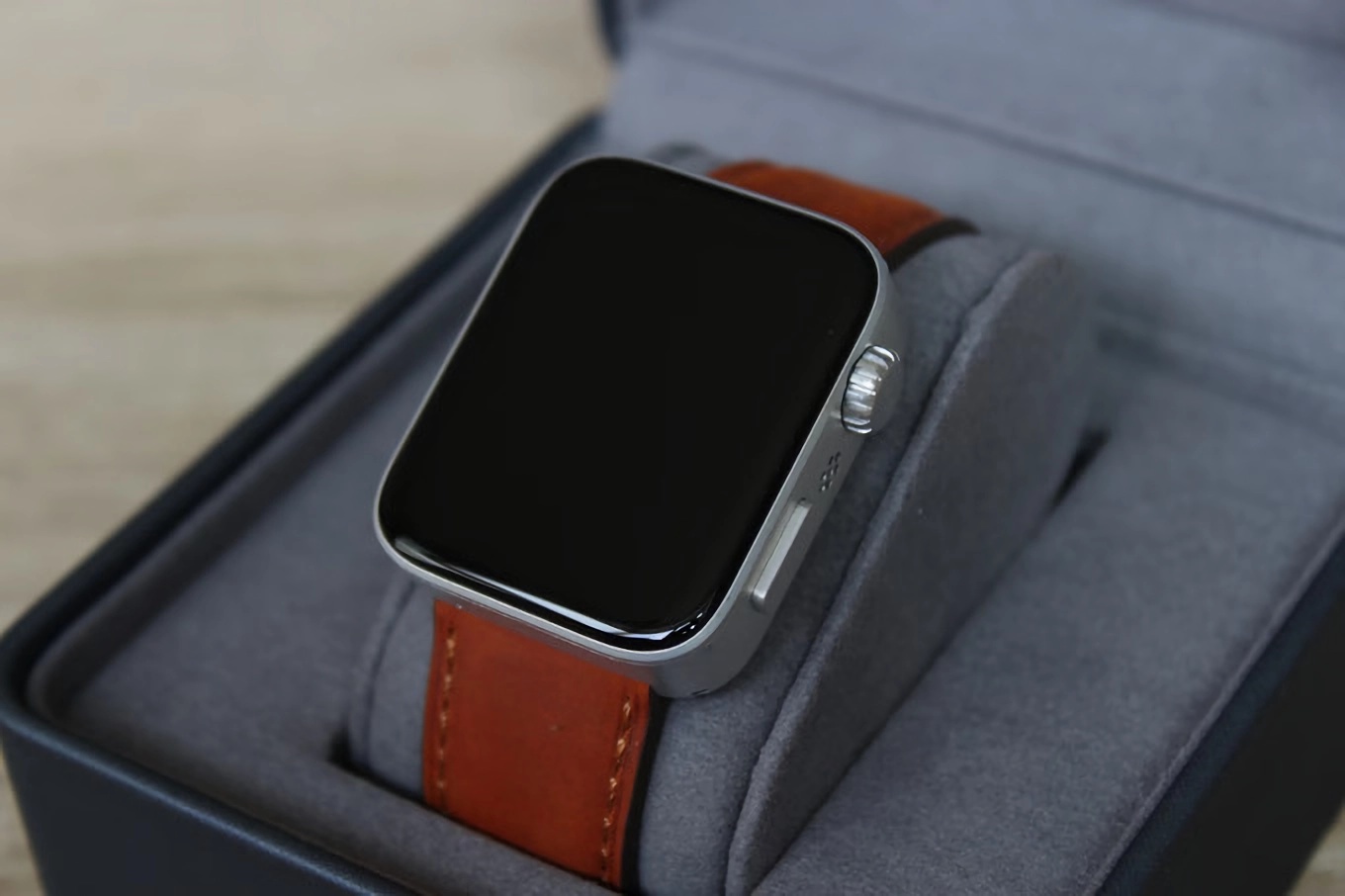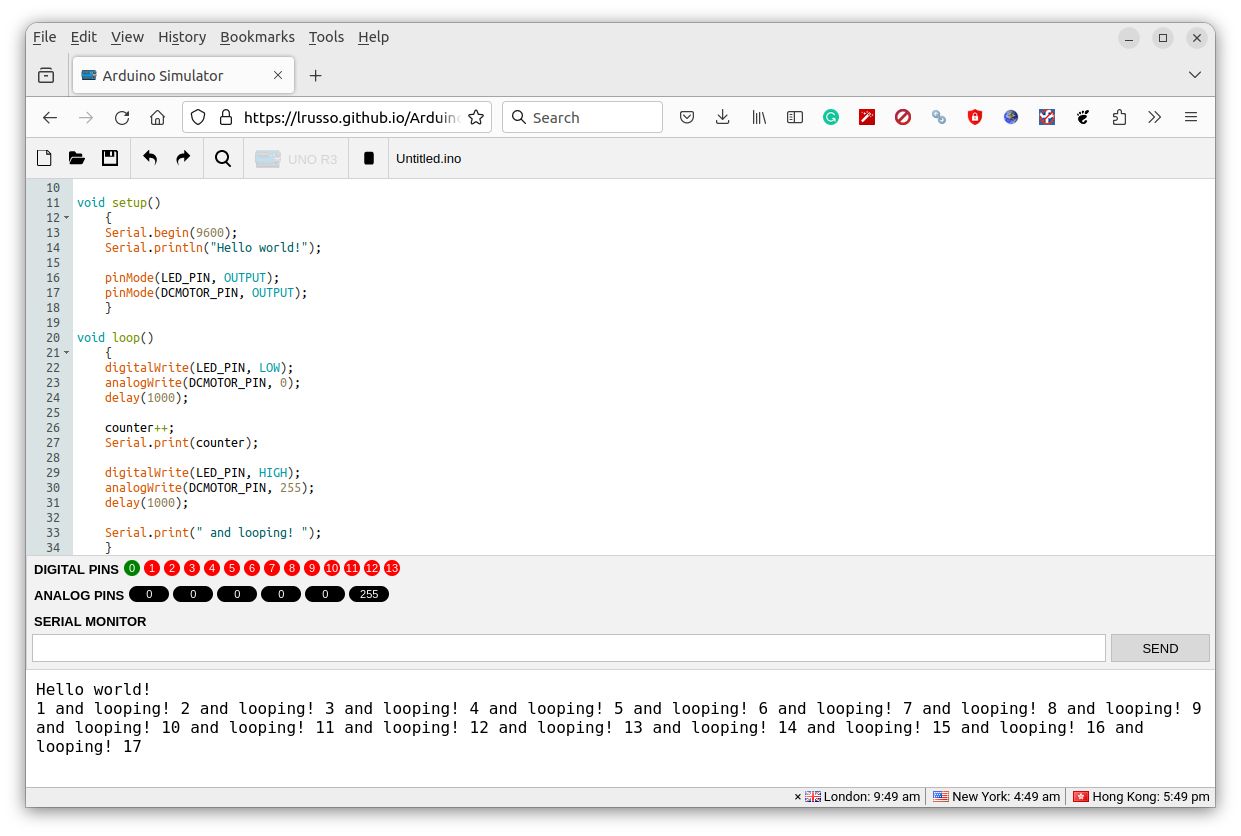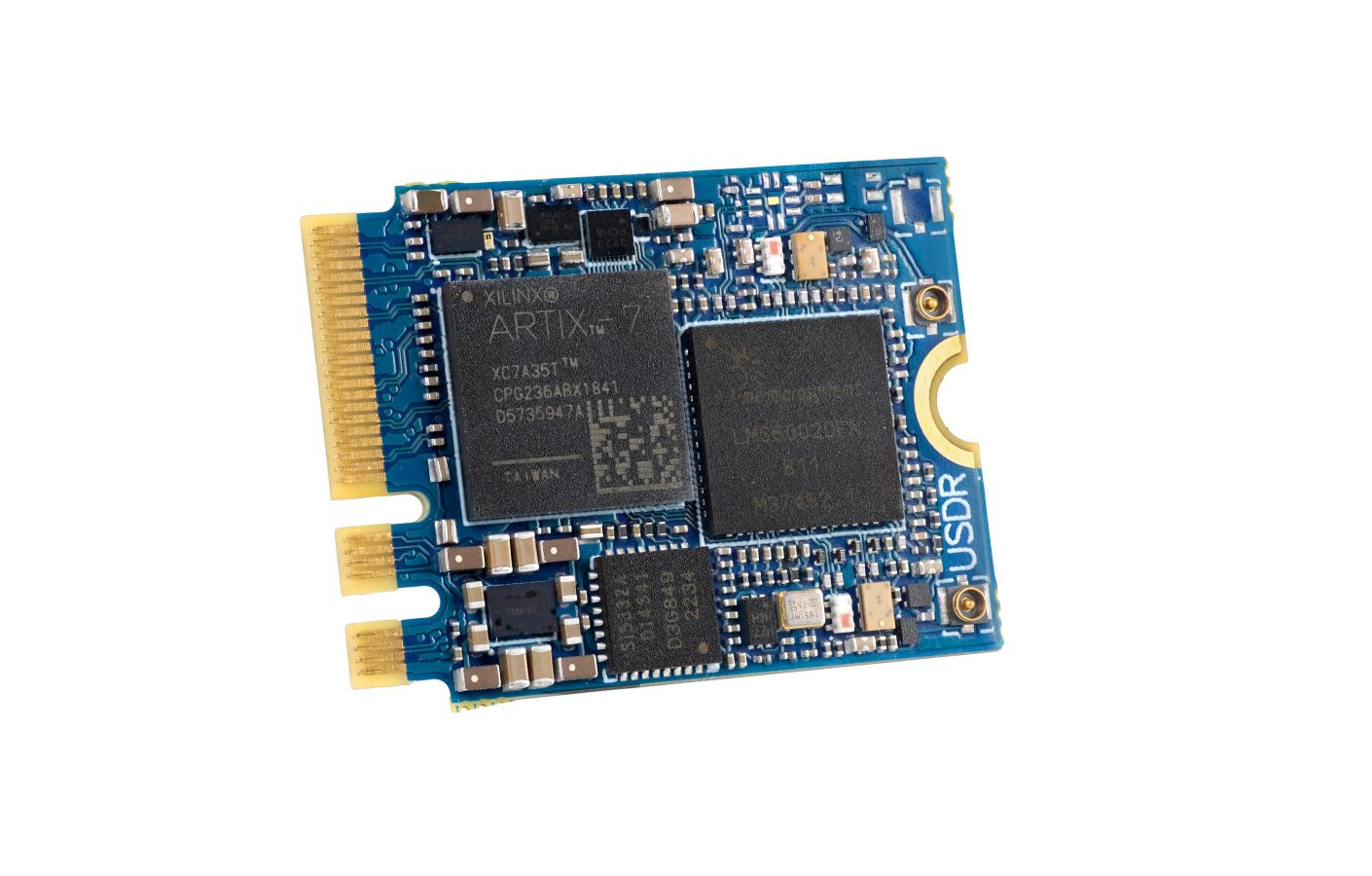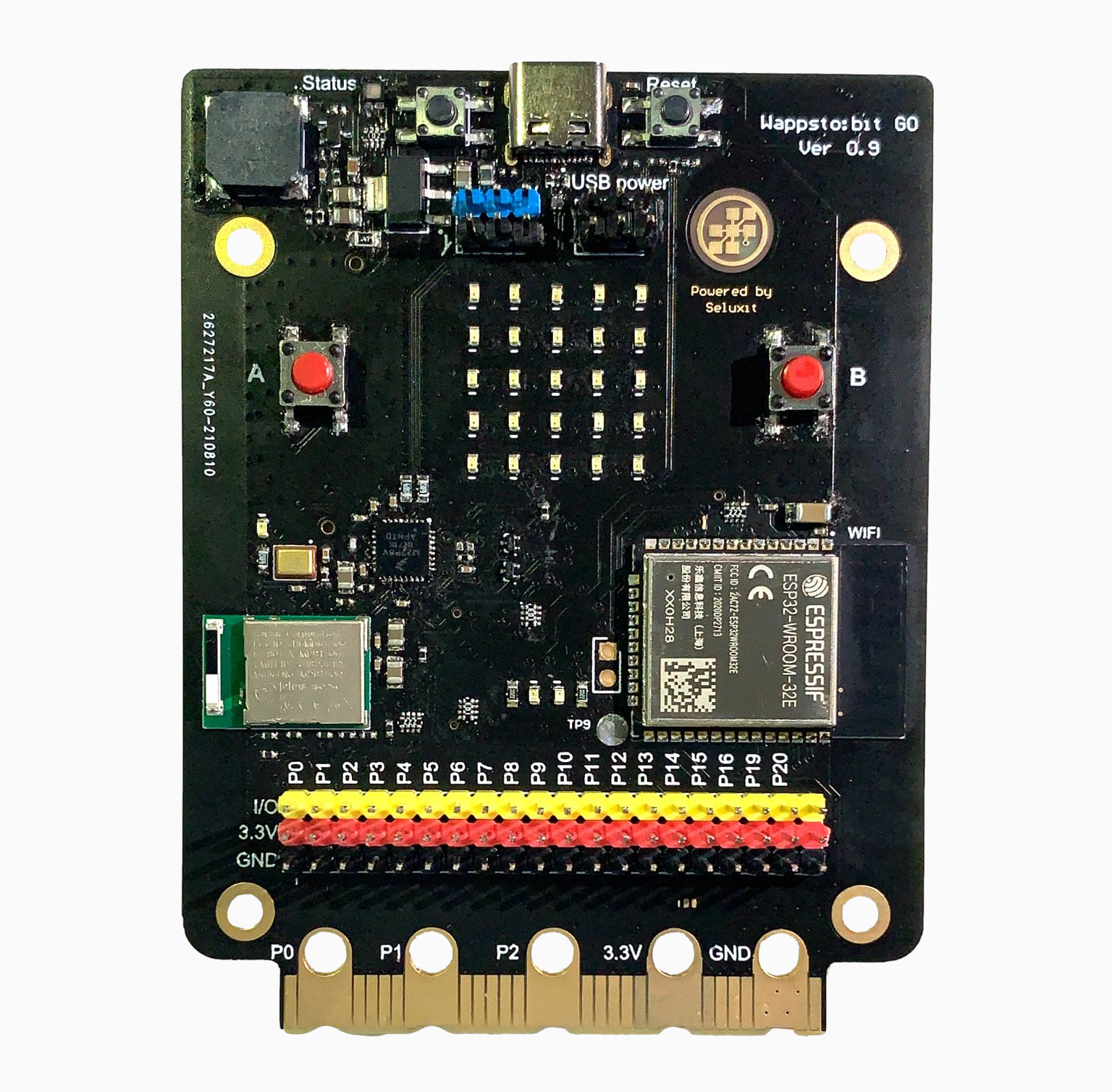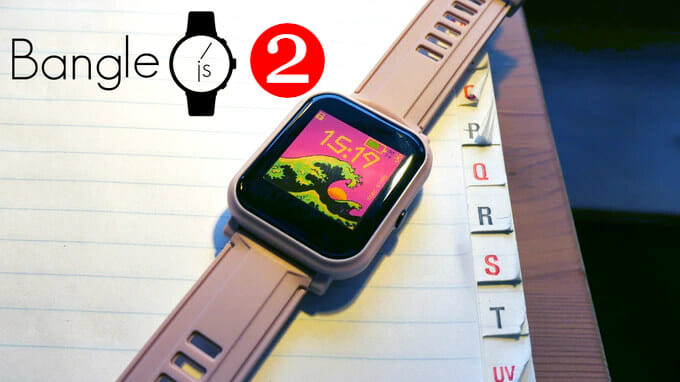SMARTHON Smart City IoT Starter Kit for micro:bit is an educational kit for 10+ years old teaching basic projects from turning an LED to more complex projects with multiple sensors, IFTTT integration, and mobile app development. The company sent us a sample of the Start Kit along with a BBC Micro:bit board for review, and we’ll report our experience with the kit in this review. Unboxing of SMARTHON Smart City IoT Starter Kit for micro:bit The package I received includes the SMARTHON Smart City IoT Starter Kit for Micro:bit and a BBC Micro:bit V2 board since it’s not included in the starter kit. The bottom side of the package lists the main components and features a QR code pointing to the product page. The package includes cardboard and wooden models, various cables, a 180° servo, a screw set, a city map, the Smarthon IoT:bit carrier board for the BBC Micro:bit, […]
Spectra is a customizable, JavaScript ESP32-S3 and nRF52832 smartwatch (Crowdfunding)
Spectra is a JavaScript-based hackable smartwatch based on the ESP32-S3 WiFi and Bluetooth microcontroller that aims to offer the quality of high-end consumer smartwatches with the repairability of a maker-targeted device. The Spectra smartwatch combines the ESP32-S3 microcontroller with a Nordic Semi nRF52832 co-processor to optimize the battery life. The ESP32-S3 is maxed out with 8MB of RAM and 32MB of external flash memory, and the microSD card slot in the watch supports up to a 512GB memory card. It shares a similar concept with the Bangle.js and the Bangle.js 2 customizable smartwatches. According to the maker, Spectra is not bound to be fully open-source, since the project uses “external proprietary code [they] aren’t allowed to share.” They plan to publish Arduino libraries and hardware design files, but there is no live GitHub repository yet. Other hackable smartwatches include the TinyWatch S3, the ZSWatch, and the Sensor Watch Pro. Spectra […]
ArduinoSimulator is an open-source Arduino Simulator that runs in your web browser
Leonardo Russo’s ArduinoSimulator is an open-source Arduino Simulator written in JavaScript that runs code directly in your web browser and shows the serial output and digital/analog pins status for various Arduino boards namely Arduino UNO R3, MEGA1280, MEGA2560, and NANO V3. We previously covered the Wokwi simulator for ESP32. Arduino, and Raspberry Pi RP2040 that’s a great little tool for educators to emulate circuits and run code right in a web browser, and it even supports the ESP32-P4 wireless MCU although it’s yet to be released. While the simulators are written in JavaScript and open-source, the tool itself is not, and for instance, you can’t run a self-hosted instance of Wokwi or use it offline. The ArduinoSimulator is fully open-source and runs entirely from a web browser. It’s not quite as complex and full-featured as Wokwi, as you can’t build your own circuits, but you still have an area to […]
Using SenseCAP T1000 LoRaWAN GPS Tracker for cattle tracking
SenseCAP T1000 is a credit-size GPS tracker using LoRaWAN low-power long-range connectivity. Smart Agriculture is one specific application that can leverage IoT and LoRaWAN to analyze and manage soil, crops, and water, but also to track the location of livestock. This is an important aspect of farming, and we’ll use the SenseCAP T1000 LoRaWAN GPS tracker to track cattle in this article/review. SenseCAP T1000 unboxing The package contains the SenseCAP T1000 GPS Tracker device, which is about the size of a credit card, and a charging cable. Smart cattle tracking with SenseCAP T1000 LoRaWAN tracker Here are some of the benefits and features of Smart cattle tracking: Identify the location of the swarm in real-time Identify animals easily Increase efficiency and reduce human labor Secure your farm by using the tracker as an anti-theft device Weather change alerts Virtual fence to generate an alert when the animal leaves the designated […]
uSDR – A tiny M.2 SDR board controllable from your web browser (Crowdfunding)
uSDR is an embedded software-defined radio (SDR) M.2 board based on an AMD Embedded Artix-7 FPGA and designed to be controlled in the Chrome, Opera, or Edge browser without specific drivers or software thanks to WebUSB technology. The module can be inserted into any compatible host, or through M.2, USB, mini PCIe or PCIe adapters, and used from a web browser with ready-to-use applications such as a spectrum monitor or a signal analyzer, or your own JavaScript, C/C++, Rust, Go, or C# application thanks to WebAssembly and the Emscripten project. uSDR specifications: RFIC – Lime Microsystems LMS6002D programmable RF (FPRF) transceiver IC operates from 300MHz to 3.8GHz FPGA – AMD Embedded XC7A35T (Artix-7) FPGA with 33,280 logic cells Full-duplex TX & RX Frequency range – 300 – 3700 MHz (usable range typically starts from 230 MHz) RX/TX Bandwidth – 0.75 – 28 MHz plus bypass mode Clock generator – SI5332A […]
Wappsto:bit GO – An ESP32 board with plenty of sensors, Micro:bit compatibility (Crowdfunding)
Wappsto:bit GO is an ESP32 board compatible with BBC Micro:bit accessories thanks to a compatible edge connector, but adding WiFi to Bluetooth LE, and offering some extras compared to Elecrow Mbits ESP32-based BBC Micro:bit clone. The new board is notably equipped with a wider range of sensors including a light sensor, a magnetometer, and sound sensor beside the temperature sensor and accelerometer present in the original board, and it also exposes GPIO through a more traditional 2.54-pitch header to facilitate the integration of a wider variety of add-on boards. Wappsto:bit GO specifications: Wireless modules ESP32-WROOM-32E module with ESP32 dual-core microcontroller, 4MB flash, 2.4 GHz WiFi and Bluetooth LE connectivity, built-in PCB antenna Raytac MDBT50Q-512K Bluetooth 5.2 module based on nRF52833 with 512KB Flash MCU – NXP Kinetis KL2 Arm Cortex-M0+ microcontroller (MKL27Z256VFM4 ) with 256KB Flash (for USB port handling) Display – 25 LED matrix Sensors Temperature sensor, Light sensor […]
Bangle.js 2 JavaScript smartwatch gets an nRF52840 MCU, a new design (Crowdfunding)
The Bangle.js 2 is an upgraded, improved version of the Bangle.js hackable, JavaScript smartwatch based on NordicSemi nRF52832 SoC that was introduced in 2019 with ESPruino open-source firmware. The new watch comes with a new rectangular design, a Nordic Semi nRF52840 SoC that offers four times the RAM, twice the on-chip and external flash, plus an always-on sunlight-readable screen with full touchscreen support, and improved Bluetooth signal strength. Bangle.js 2 specifications: MCU – Nordic Semi nRF52840 Arm Cortex-M4 MCU @ 64MHz with Bluetooth LE, 256kB RAM, 1MB on-chip flash Storage – 8MB flash Display – 1.3-inch 176×176 always-on 3-bit color LCD display (LPM013M126) with backlight, full touchscreen Connectivity Bluetooth 5.0 LE with advertising, central and peripheral mode support GPS/Glonass receiver Sensors Heart rate monitor 3-axis accelerometer, 3-axis magnetometer Air pressure/temperature sensor Misc – Vibration motor Debugging/Programming – Full SWD debug port on the rear of the watch Battery – 200mAh […]
PixelBlaze v3 WiFi LED board supports live-coding via a web interface (Crowdfunding)
We’ve previously covered a couple of ESP8266 WiFi boards to control LED strips from ANAVI Technology ESP8266 powered ANAVI Miracle Controller and ANAVI Light Controller Starter Kit, but Ben Henke has also made similar ESP8266 LED controllers with PixelBlaze boards. The latest iteration – PixelBlaze v3 – is based on ESP32 WiSoC and comes in two variants: PixelBlaze v3 Standard with headers and PixelBlaze V3 Pico in a much tinier form factor (33.3 x 11mm) with both models supporting live-coding via a web interface. PixelBlaze v3 specifications: Wireless SiP or module Standard – ESP32-WROOM-32 module with Espressif ESP32 dual-core processor @ 240 MHz with 4MB flash Pico – ESP32-PICO-D4 system-in-package with Espressif ESP32 dual-core processor @ 240 MHz with 4MB flash 4-pin header with VCC, GND, DATA, CLK for LED matrix or strip Compatible with APA102, SK9822, DotStar, WS2811, WS2812 (up to 2,500 LEDs), WS2813, WS2815, NeoPixel, and WS2801 actively […]


